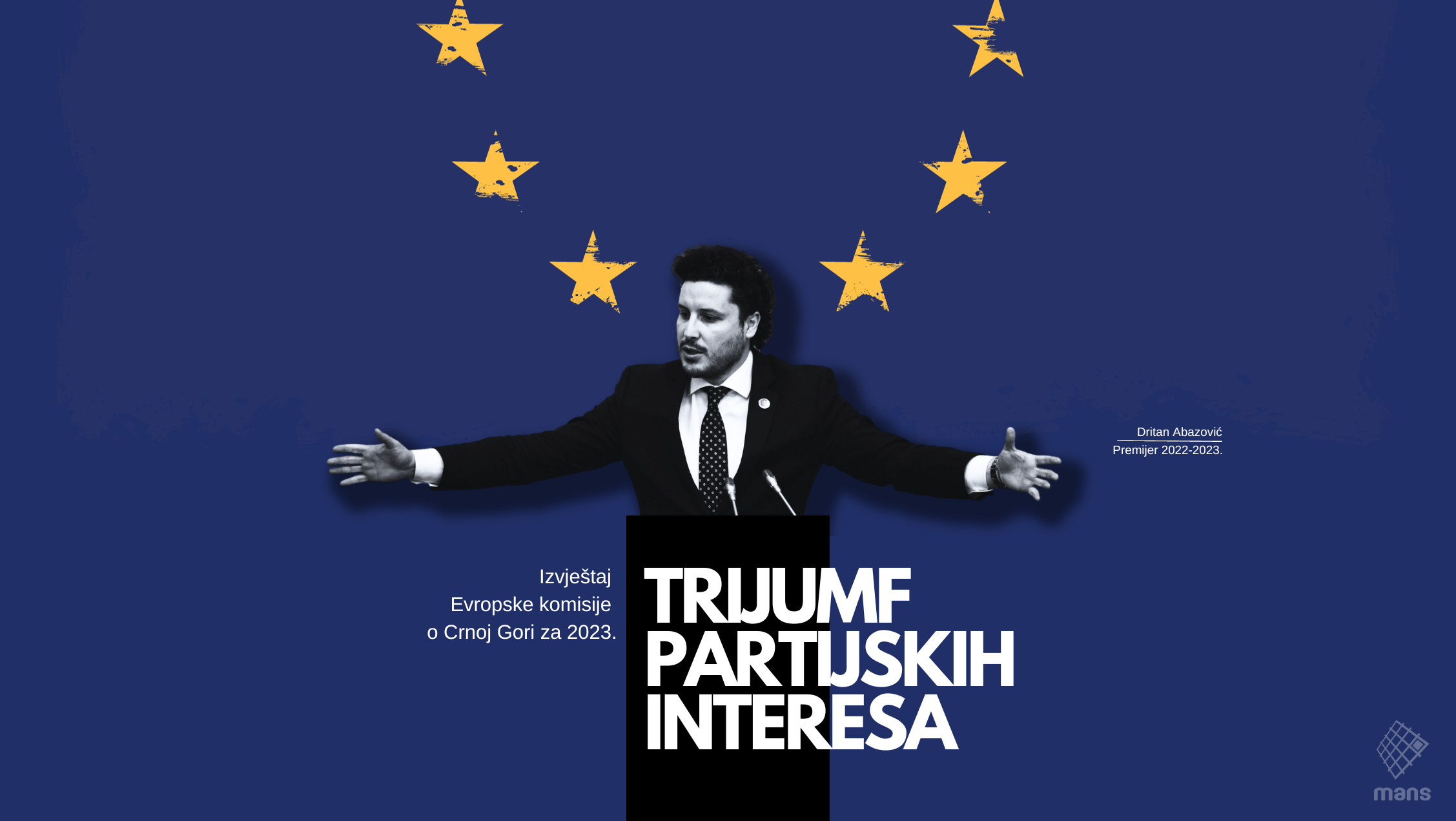Latest report of the European Commission on Montenegro paints a rather disturbing picture of some sort of triumph of party interests over the EU integration process and continued unwillingness of our system to respond to key demands in that process.
 A full decade after the opening of the negotiation chapters related to the judiciary and the rule of law, Montenegro continues to receive devastating ratings when it comes to fight against corruption, as one of the greatest challenges in the accession process.
A full decade after the opening of the negotiation chapters related to the judiciary and the rule of law, Montenegro continues to receive devastating ratings when it comes to fight against corruption, as one of the greatest challenges in the accession process.
This year, too, it is warned that corruption, including a high-level corruption, is pervasive in many areas, even in state structures, but it is also reminded that Montenegro has failed to significantly improve the anti-corruption legal framework and bring it into line with the standards of the European Union.
MANS continuously points to this issue, warning of the fact that since the change of government in 2020, not a single convocation of the parliament or the government has brought substantial changes when it comes to anti-corruption reform. Thus, the report of the European Commission states that it is still necessary to work on laws such as the Law on Prevention of Corruption, the Law on Financing Political Entities, the Law on Seizure and confiscation of material benefit derived from criminal activity, and the Law on Free Access to Information, as well as that a comprehensive anti-corruption strategy needs to be adopted.
A complete triumph of party interests over the integration process is visible in the objections from the Report regarding the lack of key judicial reforms, but also in the perseverance of the Montenegrin Government and Parliament to adopt laws and decision that are contrary to the recommendations of the European Union and the Venice Commission.
The analysis of such actions showed that in the majority of cases, it was about legal decision that were simultaneously unconstitutional but, on the other hand, fully harmonized with the interests of the political parties at that moment.
When it comes to the work of the institutions in charge of fight against corruption, there are repeated objections related to the work of the judiciary, which is still paralyzed by numerous issues that call into question its credibility and professionalism.
The European Commission addressed the work of the Agency for Prevention of Corruption again, and noted that it “improved in quantitative terms”, however, at the same time, it repeated the previous recommendations that this institution must continue to work on improving impartiality, independence, proactivity and responsibility in its work. Furthermore, the need to ensure non-selective approach and good-quality decisions made by the Agency is also mentioned.
In this year’s report, the European Commission praised the work of the Special State Prosecutor’s Office in the fight against organized crime, but also warned of the lack of comprehensive proceedings in this area, i.e. final judgments in the areas of tobacco smuggling, money laundering, human trafficking and cybercrime.
When it comes to tobacco smuggling, the European Commission strongly denies the views that we had the opportunity to hear from the Prime Minister and the Minister of the Interior and states that “the challenges related to cigarette smuggling through the Port of Bar were partially addressed, and that close monitoring and follow-up action is needed”.
In this regard, Montenegro needs to make an additional effort to strengthen the capacity of all institutions involved in the process of combating tobacco smuggling, but also to intensify the work of the entire judicial chain in order to dismantle criminal networks and improve the track record in final convictions and confiscations of the proceeds of crime.
On the other hand, the report of the European Commission on Montenegro indicates much more clearly than in previous years, with a much more direct vocabulary, what the expectations are on the path of European integration.
As such, if taken seriously, this report can represent an excellent road map for the new executive and legislative power, as well as the first test of political will to subordinate party interests to the indisputable interest of the citizens of Montenegro to finally become part of the European family.
MANS



